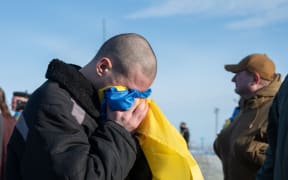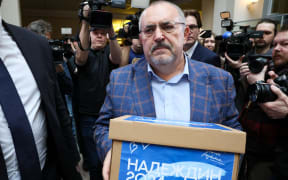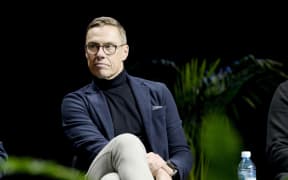By Ido Vock for the BBC
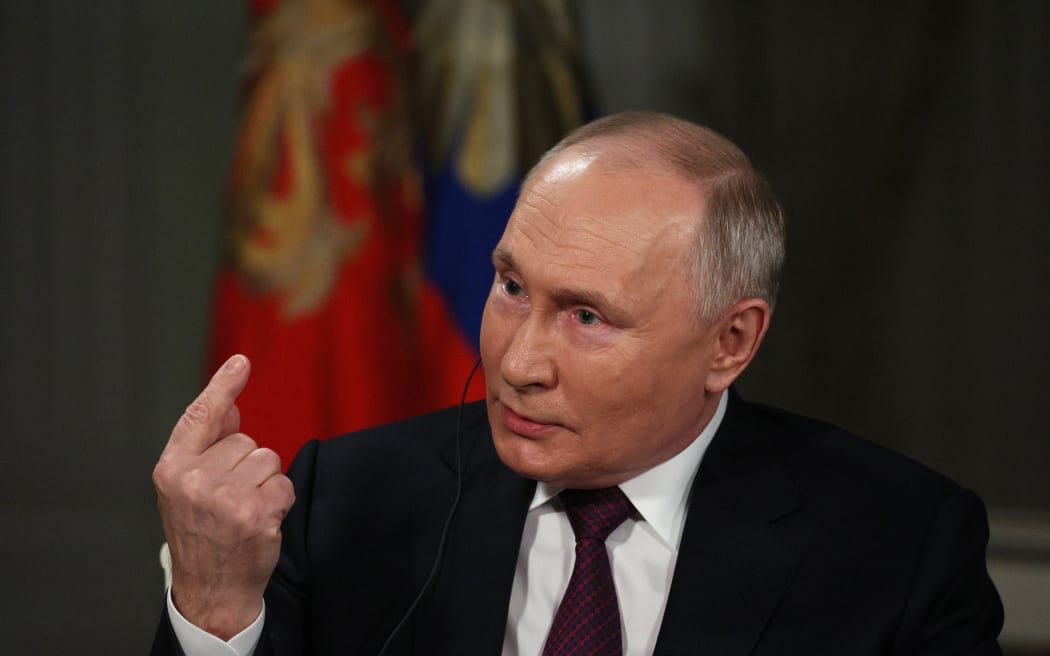
Russia's President Vladimir Putin gives an interview to US talk show host Tucker Carlson at the Kremlin in Moscow on 6 February, 2024. Photo: Gavriil Grigorov / Pool / AFP
US talk show host Tucker Carlson's interview with Russian President Vladimir Putin began with a rambling half-hour lecture on the history of Russia and Ukraine.
Carlson, frequently appearing bemused, listened as Putin expounded at length about the origins of Russian statehood in the ninth century, Ukraine as an artificial state and Polish collaboration with Hitler.
It is familiar ground for Putin, who infamously penned a 5000-word essay entitled "On the Historical Unity of Russians and Ukrainians" in 2021, which foreshadowed the intellectual justification the Kremlin offered for its invasion of Ukraine less than a year later.
Historians say the litany of claims made by Putin are nonsense - representing nothing more than a selective abuse of history to justify the ongoing war in Ukraine.
Regardless of the historical realities, none of Putin's assertions would form a legal justification for his invasion.
A state-centred narrative
Putin began the interview by claiming that 862 was the year of the "establishment of the Russian state". This was the year that Rurik, a Scandinavian prince, was invited to rule over the city of Novgorod, the capital of the Rus - the people who would eventually develop into today's Russians.
Putin contrasts what he claims is the unbroken tradition of Russian statehood dating back to the 9th Century with the modern "invention" of Ukraine - a country he insists was "created" as late as the 20th Century.
But Sergey Radchenko, a historian at the Johns Hopkins School of Advanced International Studies, says the president's claim is "a complete falsehood".
"Vladimir Putin is trying to construct a narrative backwards, saying Russia as a state began its development in the 9th Century. You could equally say that Ukraine as a state began its development in the 9th Century, exactly with the same kind of evidence and documents.
"He's trying to use certain historical facts to construct a state-centred narrative that would favour Russia as opposed to any alternative agglomerations."
Ronald Suny, a professor at the University of Michigan, says the Rus was made up of "a bunch of bandits, who burned their own capital repeatedly".
He adds that Putin is repeating an "established mythology made up at certain points in the past by Muscovite tsars who trace their lineage back to Rurik".
"This mythology was crystallised in Moscow to justify their imperial hold over Ukraine."
A 'special ethnic group'
Putin told Tucker Carlson that by the 17th Century, when Poland came to rule over parts of present-day Ukraine, they introduced the idea that the population of those areas "was not exactly Russians. Because they lived on the fringe, they were Ukrainians."
"Originally the word Ukrainian meant that the person was living on the outskirts of the state, along the fringes."
But Anita Prazmowska, a professor emerita at the LSE, says that although a national consciousness emerged later among Ukrainians than other central European nations, there were Ukrainians during that period.
"[Vladimir Putin] is using a 20th Century concept of the state based on the protection of a defined nation, as something that goes back. It doesn't."
Suny says that while it may be true that Russians, Ukrainians and Belarusians "came from the same stock … through time, they developed into different peoples."
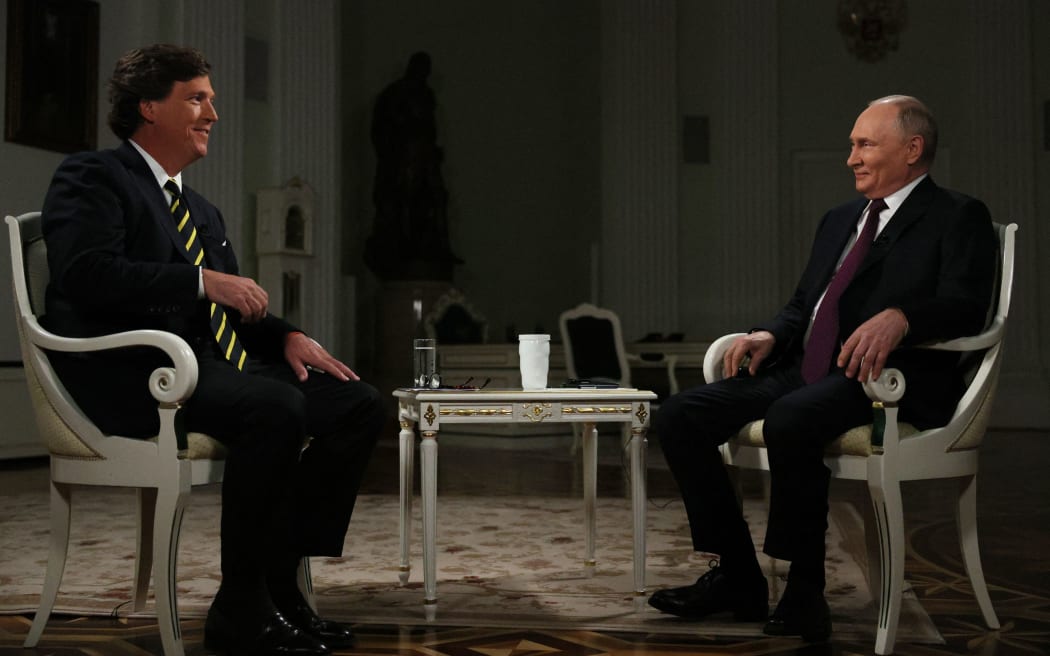
Russia's President Vladimir Putin gives an interview to US talk show host Tucker Carlson at the Kremlin in Moscow on 6 February, 2024. Photo: AFP / Pool
'New Russia'
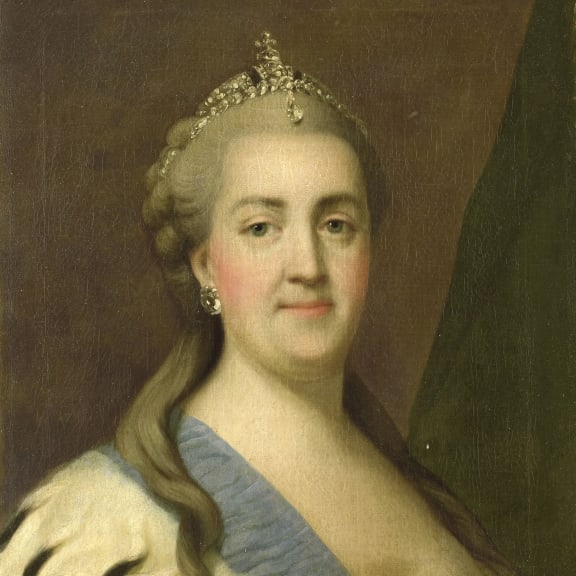
Catherine the Great. Photo: Artokoloro / Quint Lox / AFP
Putin claims that areas in the south and east of Ukraine "had no historical connection with Ukraine whatsoever". Conquered from the Ottoman Empire by the Russian Empress Catherine the Great in the 17th Century, the Russian president says that means these lands are in fact rightfully Russian. Putin later refers to them using the 17th Century term "Novorossiya" - New Russia.
Suny points out that the inhabitants of these lands when they were conquered by Russia were neither Russian nor Ukrainian, but Ottoman, Tatar or Cossacks - Slavic peasants who had fled to the frontiers.
But claiming that these territories are in reality rightfully Russian serves Putin's interests, as they are precisely the territories that Russia is attempting to conquer from Ukraine during the now decade-long conflict with its neighbour.
So-called Novorossiya includes Crimea - illegally annexed from Ukraine in 2014. New Russia also covers areas around Kherson, Mariupol and Bakhmut, which Putin declared part of Russia in 2022.
An 'artificial state'
Putin went on to claim that "Ukraine is an artificial state that was shaped at [Joseph] Stalin's will," arguing that Ukraine was created by the Soviet leadership in the 1920s and received lands to which it had no historical claim.
In a sense, he is correct, says Professor Radchenko. The Soviet leadership drew up the borders of Soviet republics "almost like the Western colonial powers drew up borders in Africa - kind of randomly.
"But that does not mean that Ukrainians did not exist."
More broadly, Radchenko denies Putin's claims that Ukraine is not a real country because it was formed in its modern form in the 20th Century. "Any country is a fake country, in the sense that countries are created as a result of a historical process.
"Russia was created as a result of decisions taken by the Russian tsars, such as the colonisation of Siberia, which came at the considerable expense of the local population.
"If Ukraine is a fake country, then so is Russia."
'Collaborating with Hitler'
Perhaps Putin's most inflammatory claim was regarding Poland. Putin claimed that Poland - which was invaded by Nazi Germany and the Soviet Union in 1939 - "collaborated with Hitler".
The Russian president told his interviewer that by refusing to cede an area of Poland called the Danzig Corridor to Hitler, Poland "went too far, pushing Hitler to start World War II by attacking them".
For Professor Prazmowska, President Putin's interpretation of history is a flawed reading of the historical record. She says that while it is true that there were diplomatic contacts between Poland and the Nazis - the first treaty Hitler signed after coming to power was a non-aggression pact with Poland in 1934 - Putin is conflating diplomatic outreach to a threatening neighbour with collaboration.
"The accusation that the Poles were collaborating is nonsense," says Prazmowska.
"You can't interpret these things as if this were collaboration with Nazi Germany, because it just so happened that the Soviet Union also signed treaties with Germany [at the same time]."
In September 1939, Nazi Germany and the Soviet Union invaded Poland according to the terms of the Molotov-Ribbentrop Pact signed between both states earlier that year.
- This story was first published by theBBC

